Universities in Spain
ADEIT - Fundación Universidad - Empresa de la Universitat de València

Advance Business School

Barcelona Architecture Center

Bircham International University

BSc in International Relations, University of London, Academic direction: LSE

C3S Business School

Cátedra de las Tres Religiones, Universitat de València

CEADE - Centro Andaluz de Estudios Universitarios

CEMFI, Centro de Estudios Monetarios y Financieros
CENEC MALAGA NUTECFOR ANDALUCÍA S.L.

Centro de Estudios Superiores Vitaldent

Centro de Formación Interdisciplinaria Superior (CFIS)

Centro Superior de Diseño Hacer Creativo

Centro Superior de Estudios Universitarios La Salle

Centro Superior Hostelería Mediterraneo

Centro Universitario Cultural Santa Ana - Almendralejo - Adscrito a la Universidad de Extremadura
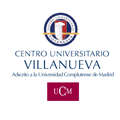
Centro Universitario Villanueva

CEOE Formación, Confederación Española de Organizaciones Empresariales

CES Don Bosco, Centro de Enseñanza Superior en Humanidades y Ciencias de la Educación

CESINE, Escuela Superior de Informática y Negocios

CESMA, Escuela de Negocios

CESTE - Escuela internacional de negocios

CESUGA - Centro de Estudios Superiores Universitarios de Galicia
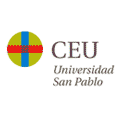
CEU Andalucía

CIFF, Centro Internacional de Formación Financiera

CIS - The College for International Studies

Colegio Universitario Cardenal Cisneros

Conservatorio Superior de Música de Salamanca

CUNEF, Colegio Universitario de Estudios Financieros

Cursos de Postgrado en Derecho para Iberoamericanos de la Universidad de Castilla-La Mancha (España)

E.T.S. Ingeniería del Diseño

E.U.T. Euroaula

EADA

EADE - Estudios Universitarios

EAE Business School

EENI

Emme - Escuela de Negocios del Mediterráneo
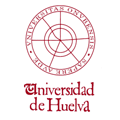
English Literary Studies, 1485-1714

EOI Escuela de Organización Industrial

EPHOS - European School of PharmaStudies

ERAM CrossMedia College

ESADE - Escuela Superior de Administración y Dirección de Empresas - Universidad Ramon Llull

ESADE Business School

ESADIB - Escola Superior d'Art Dramatic Illes Balears

ESAT - Escuela Superior de Arte y Tecnología

ESCI, Escuela Superior de Comercio Internacional - Universidad Pompeu Fabra

Escola d'Infermeria i Fisioterapia Blanquerna

Escola Superior de Disseny Felicidad Duce

Escola Tècnica Superior d'Enginyers de Camins, Canals i Ports de Barcelona

Escola Universitària de Turisme i Direcció Hotelera adscrita a la Universitat Autònoma de Barcelona

Escola Universitària de Turisme MEDITERRANI

ESCP Europe, Campus Madrid

Escuela de Negocios de Novacaixagalicia

Escuela de Negocios ESEUNE

Escuela de Negocios Lluís Vives, Cámara de Valencia

Escuela de Negocios, Universidad de Alicante - Fundación General

Escuela de Periodismo y Comunicación Unidad Editorial

Escuela de Turismo Universitaria de Zaragoza

Escuela Europea de Dirección y Empresa - EUDE

Escuela Internacional de Gerencia - EIG

Escuela Internacional de Protocolo

Escuela Politécnica Internacional

Escuela Superior de Artes y Espectáculos TAI

Escuela Superior de Cine y Audiovisuales de Catalunya

Escuela Superior de Hostelería Artxanda

Escuela Técnica Superior de Arquitectura/ Universitat Internacional de Catalunya
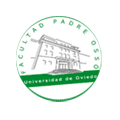
Escuela Universitaria "P. Enrique de Ossó"

Escuela Universitaria Cardenal Cisneros, EUCC

Escuela Universitaria CEU de Magisterio Vigo

Escuela Universitaria de Enfermería en Madrid Cruz Roja Española
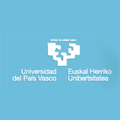
Escuela Universitaria de Estudios Empresariales de Donostia-San Sebastián (EUEE)

Escuela Universitaria de Hosteleria y Turismo de Sant Pol, Barcelona

Escuela Universitaria de Magisterio “Begoñako Andra Mari”

Escuela Universitaria de Turismo CETA

Escuela Universitaria de Turismo de Murcia

Escuela Universitaria Fray Luis de Leon

ESCUNI - Escuela Universitaria de Magisterio de Madrid

ESDEN Business School

ESEI International Business School

ESERP, Business School

ESESA - Innovative Business School

ESIC, Business & Marketing School

ESNE, Escuela de diseño

ESODE, Escuela Superior de Organizadores de Eventos

ESTEMA Escuela de Negocios, Universidad Europea de Madrid

Estudios Superiores Abiertos de Hostelería ESAH

ETSIT, Escuela Técnica Superior de Ingenieros de Telecomunicación. Universidad Politécnica de Madrid

EU Business School Barcelona

EUNCET Business School

Euro MBA

Facultad de Ciencias Económicas y Empresariales (UAM)

Facultad de Economía y Empresa (Unizar), Universidad de Zaragoza

Facultad de Medicina de la Universidad Autónoma de Madrid

Facultad de Teología San Vicente Ferrer de Valencia

Facultat de Ciències de la Comunicació Blanquerna, Universitat Ramon Llull

Facultat de Psicologia, Ciències de l'Educació i de l'Esport Blanquerna, Universitat Ramon Llull

FEF - Fundación de Estudios Financieros

Florida Universitària

Formatik

Foro Europeo Escuela de Negocios
Universities in Spain by City:
Alcala de HenaresAlfara del PatriarcaAlmendralejoAlmeríaAlteaAtarfeAvilaBadajozBaezaBarcelonaBellaterraBilbaoBormujosBurgosBurjassotCadizCantoblancoCartagenaCastellón de la PlanaCatarrojaCerdanyola del VallèsCeutaCiudad RealCorbera de LlobregatCordobaDonostia ElcheGetafeGironaGranadaGuadalupeHoyo de ManzanaresHuelvaJaénLa Almunia de Doña GodinaLa CoruñaLa LagunaLas Palmas de Gran CanariaLas RozasLeioaLeónLleidaLogroñoMadridMalagaManisesMarbellaMoncadaMondaMondragónMóstolesMurciaOviedoPalma de MallorcaPamplonaPaternaPedregalejoPozuelo de AlarcónSalamancaSaltSan Lorenzo del EscorialSan SebastianSan Vicente del RaspeigSant Cugat del VallèsSant Pol de MarSantanderSantiago de CompostelaSegoviaSevilleSitgesTarragonaTerrassaToledoValenciaValladolidVicVigoVillafranca del CastilloVillanueva de la CañadaVillaviciosa de OdónVitoriaZamudioZaragozaAbout universities in Spain
There are 73 universities and colleges in Spain, most of which offer both undergraduate and graduate degrees. The majority are at least partially state funded, but a few are private institutions. Some of the latter are affiliated with the Catholic Church. As in most countries, Catholic universities in Spain are not known to be either exceptionally good or particularly bad, nor do they tend to have a special curriculum. Although theology and Christian history may be more emphasized in Catholic institutions, they are not studied to the exclusion of the arts, sciences, and humanities.
In an effort to integrate its education system into the broader community of higher education in Europe, Spain has accepted membership in the European Higher Education Area. Composed of 47 nations in Europe, the EHEA is an organization that attempts to standardize curriculums, academic standards, and degree requirements across the countries of Europe so that employers can better understand the educational credentials of prospective employees from other countries. As the economic and social boundaries in Europe become ever more fluid, the need for a coordinated educational policy has become paramount, and so Spain has undertaken the effort to systematize its education system in a way that makes it commensurate with systems of higher education in other European countries. The EHEA covers everything from undergraduate (Bachelor’s) degrees up to Master’s and Doctoral degrees.
In addition to participating in the external standardization of the European Higher Education Area, Spain has also been undergoing a process of internal standardization regarding its universities. Part of this process has been an increasing reliance on standardized tests. Spanish high school students who plan to go to college have to complete 2 years of college preparatory training and get good grades, then score well on one of Spain’s standardized college admissions tests. These tests have a major influence on which students will be accepted and which will not.
 The University of Salamanca Library, Source
This section will assist you in finding universities in Spain that match you interests. You should know that Spanish universities are under the jurisdiction of the Ministerio de Educación, Cultura y Deportes (M.E.C.) and offer several degree programs: Diplomaturas (three years), Licenciaturas (four to five years, six in Medicine) and Doctoral programs (three years after the degree of Licenciado). Also, there are Masters, University Specialists, and University Experts programs.
The University of Salamanca Library, Source
This section will assist you in finding universities in Spain that match you interests. You should know that Spanish universities are under the jurisdiction of the Ministerio de Educación, Cultura y Deportes (M.E.C.) and offer several degree programs: Diplomaturas (three years), Licenciaturas (four to five years, six in Medicine) and Doctoral programs (three years after the degree of Licenciado). Also, there are Masters, University Specialists, and University Experts programs.
If you wish to complete a degree program in a Spanish University--not just a semester or a Spanish Language program--you must begin by contacting the Spanish Embassy or Consulate in your home country to validate or "convalidar" your current education. Once this is done, you will have to take the Spanish university entrance exam and secure a opening in the college where you wish to study.
In general, Spain is considered to have one of the best higher education systems in the world. Internationally, is ranked 5th–behind only the USA, Germany, the UK, and Canada. In addition to its quality, Spanish postsecondary education is set apart by its consistency, in that it lacks “star” institutions that outshine the rest. Nearly all of the 73 colleges and universities in Spain meet high standards of academic rigor and quality of instruction.
Funding for institutions of higher learning in Spain comes primarily from the government. The majority of the colleges and universities in Spain are at least partially state-funded, although there are some private (mostly Catholic) schools as well. The private schools are generally to be about as good as public schools, although the curriculum varies somewhat at Catholic schools. Overall, though, there is no significant difference in quality between private and public universities in Spain. Unlike many countries, where public colleges are wildly better or worse than the private alternatives, all colleges and universities in Spain are fairly similar in quality.
 The University of Santiago de Compostela, Faculty of History
The University of Santiago de Compostela, Faculty of History
Recent developments in Spanish higher education have been characterized by efforts to standardize curricular and evaluative systems. Along with many other European countries, Spain participates in the European Higher Education Area, also known as the EHEA or Bologna process. This process is designed to ensure that educational credentials throughout Europe are comparable–enabling employers and educational institutions from various European countries to coordinate their efforts more effectively. The increased fluidity of borders in Europe has created a need for education and training programs that can prepare students for a transnational job market, and this is the need that the Bologna process seeks to meet.
In addition to its participation in the EHEA, Spain has also seen increased standardization of admissions requirements. After completing their college preparatory training, prospective university students in Spain must achieve high scores on standardized college admissions tests, which greatly affect the student's chances of acceptance. As in all countries that rely heavily on standardized testing, Spanish educational authorities have had to confront the controversial problem of “teaching to the test.” Finding the right balance between test preparation and broader education will likely be a challenge for the Spanish education system in years to come.
Spain has a number of excellent and high-performing universities—both public and private schools spread out among the country’s many provinces and cities. Among these universities are a number of international institutions of higher education, as well as several satellite campuses for universities in other countries, including the United States. Below we will take a closer look at some of the public and private universities in Spain, with a special focus on international institutions, American universities with campuses in Spain, and some of the more popular degree programs in the country in which English is the primary language of instruction.
Public and Private Universities in Spain
Spain is a country that consistently ranks among the world leaders in terms of the quality of life for its citizens—a quality of life that is bolstered and, in large part, sustained by the country’s excellent system of higher education. During the 2012/2013 academic year, 18 Spanish universities appear in the QS World University Rankings, 14 of which were ranked in the top 500. Spain’s higher education landscape includes both public and private universities, large and small. The largest universities are predictably located in some of Spain’s larger cities, particularly Barcelona and Madrid, the country’s capital. Private universities tend to be smaller, with the majority owned and operated by the Catholic Church, by far the largest religious affiliation in the country. Below is a brief sample of some of the public and private universities in Spain, along with the cities in which they are located.
Public Universities in Spain
 La Complutense, one of Madrid's public universities
La Complutense, one of Madrid's public universities
- Universidad Complutense de Madrid—Madrid
- Universidad Politecnia de Madrid—Madrid
- Universidad de Granada—Granada
- Universidad de Barcelona—Barcelona
- Universidad de Seville—Seville
- Universidad de Valencia—Valencia
- Universidad del Pais Vasco—Bilbao
- Universidad Pompeu Fabra—Barcelona
- Universidad de Malaga—Malaga
Private Universities in Spain
- Catholic University of Avila—Avila
- Loyola University Andalusia—Seville
- University of Duesto—Bilbao
- Pontifical University of Salamanca—Salamanca
- Abat Oliba CEU University—Barcelona
- University of Vic—Vic
- Alfonso X University—Villanueva de la Canada
International Universities in Spain
Spain is home to several international universities—schools that promote international education, with a credit and degree structure that is generally accepted at most higher education institutions around the world. International universities boast a very diverse faculty and host students from every corner of the globe. These institutions are generally accredited by international bodies, and have a non-selective student enrollment. Instruction at Spain’s international universities is typically provided in English, or bilingually in both English and Spanish.
 EU Business School in Barcelona
EU Business School in Barcelona
One of Spain’s largest and most respected international universities is the EU Business School in Barcelona. EU Barcelona, as it is popularly known, is one of Europe’s leading international business schools, providing accredited undergraduate and graduate programs in business, management and finance. In each of these programs, the language of instruction is English.
EU Business School Barcelona is located in the very attractive Bonanova neighborhood of Barcelona, and is part of the EU system of university campuses spread throughout Europe and Asia. With small, dynamic classes, EU Barcelona offers the best of European and American academic traditions in an international environment. The school offers undergraduate degrees in Business Administration and Finance, a Master of Business Administration (MBA) and specializations in a broad range of management disciplines.
EU Business School is just one of the many universities in Spain offering a broad range of international programs. Some of the other international universities in Spain include:
- Isabella I of Castile International University—Burgos
- International University of Catalonia—Barcelona
- International University of La Rioja—Longrono
- European University of Madrid—Madrid
- Valencian International University—Castellon de la Plana
- Marbella Design Academy—Monda (about 15 kilometers from Marbella on the Costa del Sol in the south of Spain)
American Universities with Campuses and Study Abroad Programs in Spain
Spain plays host to a handful of American-based universities. In addition, there are a countless number of Spanish universities that host study abroad programs in the country, where American students can come to Spain and study for a semester or full academic year.
 Saint Louis University, Madrid Campus
Saint Louis University, Madrid Campus
One of the more popular American universities with a campus in Spain is Saint Louis University (SLU). SLU is a Jesuit institution, ranked among the top 100 research and teaching institutions in the United States. Its programs are distributed over two campuses: the St. Louis Campus in the U.S. state of Missouri, and the Madrid Campus, located in Spain’s diverse capital city. The University enrolls more than 11,000 students, 650 of which elect to pursue their studies in Madrid. While originally established in the 1960s as a study abroad program for U.S. students, the Madrid Campus is now a free-standing campus of Saint Louis University, where students from more than 65 countries study undergraduate and graduate courses to obtain either a 4-year undergraduate degree or a graduate degree in a variety of disciplines. All degrees earned at the Madrid campus of SLU are recognized by the United States. Students merely studying abroad for a semester or two can also gain credits towards their degrees on their home campuses.
There are many universities in Spain that sponsor study abroad programs for American students. One such institution is the University of Oviedo, which hosts a spring semester program for students who attend Temple University (TU), located in Philadelphia, Pennsylvania in the United States. TU’s spring semester program in Spain was developed in 2008 in response to the huge success of its existing summer session in Oviedo. This relatively new program is designed for students who are committed to enriching their education and for those looking to gain valuable Spanish language skills and a deeper understanding of Spanish culture.
English Programs at Spanish Universities
To keep up with the rising demand for English-instruction in Spain, many of the country’s universities now offer a few degree tracks in which the language of instruction is entirely English. This, of course, does not include the international universities in Spain, or the U.S. study abroad programs, in which the language of instruction is always available in English.
While many of Spain’s traditional universities feature English-only degree programs, most of these programs are only available at the graduate level. According to a recent survey, the most popular area of study in which English is the language of instruction is Business and Economics, where English-taught Master’s Degree programs make up 28 percent of the total offerings in this field. Within that discipline, the most popular English degree tracks are International Business, International Relations, Business Administration (MBA) and Business Management. Other areas in which English-taught degrees are often available include the Social Sciences, Engineering and Technology, while the least represented fields tend to be the Humanities and Natural Sciences at the universities in Spain.






